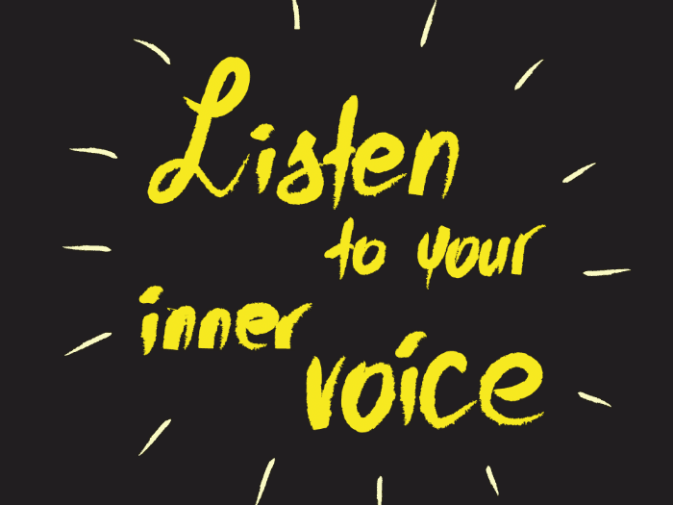
Today’s topic is how to be more productive through self-talk.
Thomas is troubled. As of his most recent birthday, he is Europa’s 16-year-old cybernetic genius son. And he’s discovering that having an IQ of 420 doesn’t help one bit when it comes to emotional issues like…getting up the nerve to ask someone to the junior prom.
We all have emotions, and emotions control far more of our behavior than we usually like to admit. We get upset because a drop of wine spilled on our nice, white carpet. So we do the logical thing: we yell and scream and insist that our life has been ruined forever, and it will require mortgaging the house to fix a red wine stain. Our shmoopies say things like, “Honey bug, you are pretty upset and being irrational right now.” And in our glorious emotional state, we just know we’re being as rational as it’s possible to be. So we yell back at the top of our lungs, “No, I’m not! I’m being completely rational.”
A week later, after we get released from the happy place with padded walls, we get a bottle of Gonzo, squirt a little on the carpet, and the wine stain comes up in about 13 seconds worth of work.
Our Inner Voice is the Problem
Our emotions often come about because of our internal dialog. If you are about to give a speech, you probably prepare yourself mentally by talking to yourself. Some people say things like, “This is going to be a total disaster! I’ll probably stutter, be unable to form a coherent sentence, and accidentally confess to the world that I have an unnatural love of lamb-covered bananas in cherry sauce.”
This little internal pep talk probably isn’t going to be the best preparation for stepping out on stage.
Other people say things like, “I’m going to be the awesomest, strongest, fastest, sexiest, most intelligent speaker this group of actuaries has ever seen in a professional setting!”
Despite the rather low bar (actuaries aren’t exactly known for their exciting speakers lineup), this internal pep talk is going to launch our speaker onto the stage in a positive cyclone of motivation, good spirits, and glitter. Because glitter makes everything better.
Speak in the Positive
Thomas can start by fixing up his negative self-talk. His pep talk up until now has been saying “No one will ever want to date a kid who has a miniaturized nuclear power plant instead of a heart.” He can change that to be positive self talk. “I am attractive, smart, sensitive, have a high sense of integrity, and glow in the dark.”
The first step towards psyching yourself up is to toss the self-talk that makes you feel bad, in favor of self-talk that creates a positive self-image.
Use Third-Party Pronouns
There’s another step, however. It turns out that all throughout time, there have been teenagers and junior proms. Some of those teenagers were so traumatized by their junior proms that they grew up to become research psychologists, determined to make sure no one was ever damaged by the high school social scene ever again.
A couple of them have been studying self-talk and published an article in the American Psychological Association’s Psychnet journal called Self-talk as a regulatory mechanism: How you do it matters.
They discovered something really surprising: if you want to regulate your emotions, it’s better to talk in the second or third person. Rather than thinking “I’m going to bake the best strawberry upside-down cake ever,” think “You’re going to bake the best strawberry upside-down cake ever,” as if you were someone else, and you were talking to you.
It's better to talk to yourself in the 2nd or 3rd person.
Third-person also works. Rather than saying “I am attractive, smart, sensitive, and glow in the dark,” Thomas will get even better results saying “Thomas, you’re attractive, smart, sensitive, and glow in the dark.”
Use the Right Voices
Because scientists are awesome, and so am I, I’ll add my own twist to this. Some people have told me their self-talk isn’t in their own voice. Instead, they hear the voice of their parents, or their boss, or their shmoopie. In my case, most of my own low-self-esteem self-talk was in the voice of a kid who used to tease me…in sixth grade. These things have power!
When you’re teaching yourself better self-talk, put the self-talk in your own voice, or the voice of someone you respect and believe has your best intentions at heart.
This part is easy for Thomas. Being a cybernetic kid, he’s always had great respect for the household refrigerator. So he prepares himself. “Thomas, you are attractive, smart, sensitive, and glow in the dark!” He repeats it several times, in his own voice, and also in the voice of the Frigidaire Deep Freeze. Then he picks up his phone, dials the number, and when his intended prom date answers, he confidently pops the question. I don’t know what answer he got, but he zipped downstairs, glowing from ear to ear.
When psyching yourself up, do it so it’s most effective. Say good things, rather than rehashing your insecurities. Use second- or third-person phrasing, and use the voice tone of someone who has your best interests at heart. Preferably, you!
I’m Stever Robbins. Follow GetItDoneGuy on Twitter and Facebook. I run accountability programs to help self-employed and small business people make intense progress on projects and routines things that drop through the cracks or take forever to finish. Find information at http://www.SteverRobbins.com . You’ll also get a free copy of my secret book chapter on how to build relationships that help you succeed.
Image © Shutterstock
Tidak ada komentar:
Posting Komentar